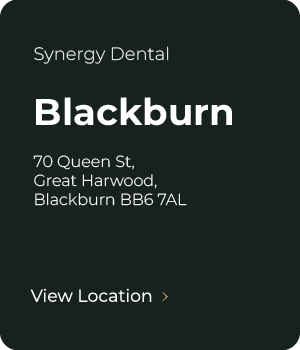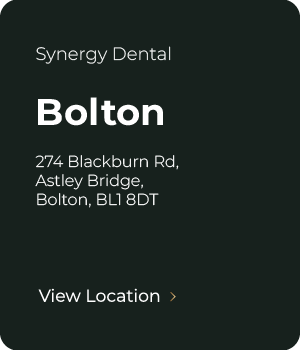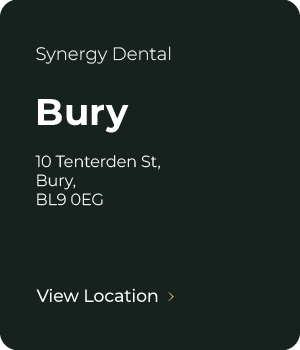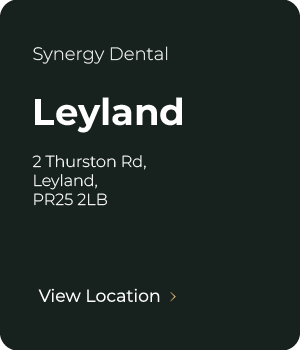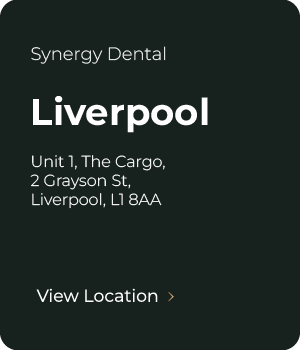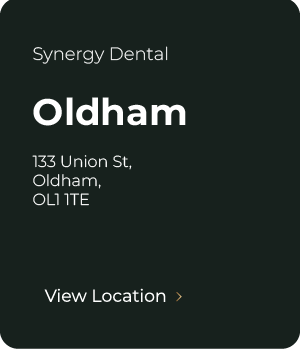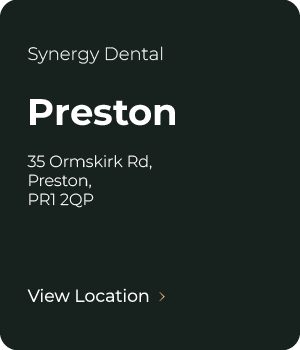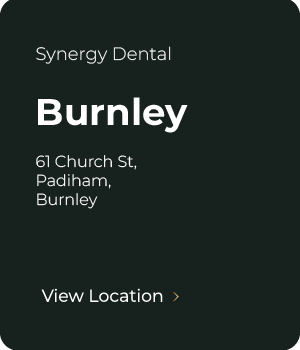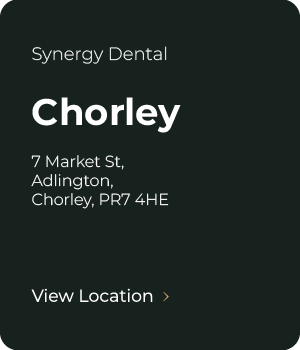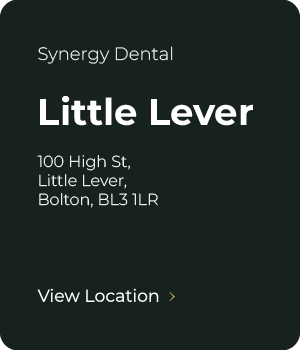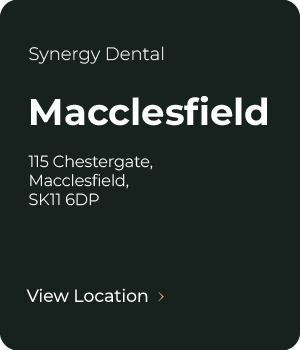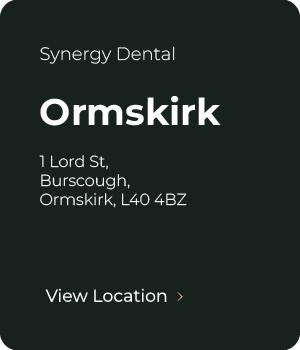Teeth whitening or “bleaching” is a common cosmetic procedure, but what actually is it? How does it work, and what should you know before going ahead with whitening treatment?
What Is Teeth Whitening?
Teeth whitening is a process of gradually changing the colour of the teeth. It works by slowly lightening the enamel with a bleaching agent – usually a type of peroxide. Teeth whitening is useful for those of us who have stained teeth or are unhappy with the natural white chase of our teeth and wish for a brighter, whiter smile.
Tooth whitening is commonly available over the counter in the form of strips or trays, or under guidance from your dentist.
What Are The Steps of Tooth Whitening?
Whitening is a popular treatment because it is fast and simple. Many people can have whitening treatment in just 1 or 2 appointments with the dentist. The first appointment is to check your eligibility for treatment and take the necessary scans to create your whitening trays.
Once you have your whitening trays, you need to wear them with the whitening agent! Your dentist will give you exact instructions, but generally, you’ll put a small amount of the whitening gel for each tooth, then put the trays in overnight for a minimum of 8 hours.
Afterwards, you’ll have another appointment where you’ll talk to your dentist about your results. If you’re happy with the results, your dentist will guide you on how to keep your smile white!
What Is Better: At-Home Tooth Whitening or At A Dentist?
Whilst marketed as a cheap way to brighten your teeth, the truth is that at-home whitening kits could cost you more in the long run. At-home treatments like whitening strips are strictly controlled in the UK, and are limited to a low percentage of peroxide – because they do not contain enough peroxide, whitening strips might make your teeth look temporarily brighter, but will not make your teeth white in the long-term.
But what about whitening kits that make use of trays that you wear on your teeth (usually overnight), are they any better?
Whitening kits are not only ineffective compared to teeth whitening by a registered dentist, they’re also much riskier. Due to being readily available without the need for a checkup from a dentist, over the counter whitening can be accessed by anyone. If you suffer from gum-disease or other dental problems, tooth whitening can cause these problems to get worse.
Because over the counter tooth whitening isn’t guided by a dentist, the whitening trays have not been designed to fit your mouth shape, and there is a danger that the whitening agent can spill out onto your tongue and gums, and can even cause burns on the soft-tissue of your mouth.
When you get tooth whitening with one of our dentists, we perform a thorough check of your oral health to check you’re suitable for tooth whitening. We then create custom whitening trays to fit your teeth perfectly, ensuring a tight seal against your teeth. This helps the whitening gel to permeate the tooth enamel more effectively, and also ensures the whitening trays are comfortable and won’t leak.
Other places, such as beauty salons might offer tooth whitening – but these treatments are not usually performed by licensed dentists, and legally shouldn’t be offered by someone who isn’t qualified. Make sure you do your research to check the person performing your treatment is listed as a dental professional on the GDC register.
It’s always better to get your teeth whitened by a dentist. Not only is it safer for you and your oral health, it’s also a lot more likely to come with effective results.
Who Can’t Have Tooth Whitening?
Children under the age of 18 cannot have tooth whitening – though exemptions may be made when the teeth have darkened due to certain medications or trauma to the teeth when it is affecting the patient’s mental health.
Some people may also be unsuitable for tooth whitening if they have oral health problems such as gum disease, or certain medical conditions. That’s why it’s important to see your dentist before undergoing tooth whitening. Make sure you are honest with your dentist about any health problems as this could make your tooth whitening less effective.
If you have veneers, crowns, or composite bonding, tooth whitening will not work on the areas of your mouth that you’ve had the cosmetic treatments on previously. This is because tooth whitening works by lightening the enamel – as veneers/ crowns don’t have enamel, and composite bonding covers your enamel, it’s impossible for whitening to work on your teeth, but it can affect your natural teeth. It’s common for many patients to use whitening alongside other cosmetic treatments like veneers and bonding to whiten the whole smile and make your natural teeth match the rest of your smile.
Will Whitening Make My Teeth Sensitive?
Whitening has a reputation for making your teeth sensitive, but as technology has improved, this has become less of an issue and there are ways to counter the sensitivity that comes with tooth whitening.
Sensitivity is usually short-term, and disappears within a few days of ending treatment, but if you are struggling with sensitivity after whitening, come and see us!
What Whitening Can I Have At A Synergy Dental Clinic?
At Synergy, we offer 2 different brands of tooth whitening: Enlighten, and Prestige.
Enlighten is one of the leading whitening brands, and guarantees a B1 shade for almost all patients.
Prestige is our own brand of whitening, and is free for all patients on SynPlan!
If you want to know about our teeth whitening, you can book in with one of our dentists today by giving us a call or booking online.

